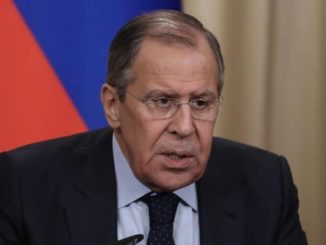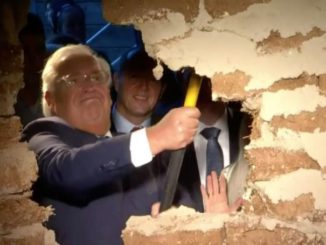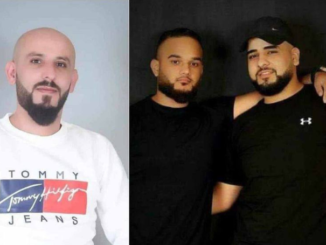
By Ramona Wadi
The UN Office for the Coordination of Humanitarian Affairs in the occupied Palestinian territory (UNOCHA) yesterday published a joint statement calling for the protection of children’s rights. As usual, the UN has expressed its perpetual and purported “deep concern” about the violation of children’s rights and has demanded that “concrete, immediate steps be taken to allow children to live free of fear and to realise all their rights.”
The reader shouldn’t take long to realize that the statement is built upon discrepancies. While it carries the assumption that the UN is primarily concerned with the loss of children’s rights in Gaza, the introductory paragraph puts Palestinian and Israeli children on a par with regard to the violation of their rights, without taking into consideration that Israeli colonialism is the culprit.
Using children as the premise for the press release allows the UN to make no differentiation between the children of illegal settlers who have opted to colonize Palestinian land, and the children of the colonized and besieged population. If settler children are “exposed to fear, trauma and grave injuries”, then the press release must clarify both their parents’ and the Israeli state’s culpability, while placing accountability for protection upon the same political actors. Failing to do so is granting the settler-colonial, apartheid entity perpetual impunity.
Another omission is the aim and context of the Great March of Return protests which the press release describes merely as “demonstrations against living conditions in Gaza”. The aim of the protests has always been unequivocal: the Palestinian refugees (who make up most of the population of Gaza) are protesting for their legitimate right of return to the land from which they and their forebears have been ethnically cleansed since 1948.
Why, we are entitled to ask, are UN institutions refusing to recognize UN Resolution 194? The answer can be found in the wording of the resolution itself; the lack of authority, despite return being a legitimate right, has twisted such return into a compromise despite the use of the word “right”. From resolution to rhetoric, the UN has manipulated Palestinian rights to the point that it can give a partial context to the Great March of Return and get away with it, rather than be held accountable for omitting the right of return.
As children’s rights are the departure point for this press release, the final paragraphs “deplore the too often cynical use of children in political rhetoric and propaganda on all sides.” They give, as an example, the Great March of Return organizers’ decision last week to use the slogan “the Friday of our child martyrs” which is deemed exploitative.
In a context void of colonialism, there would be no need for such a slogan. Israeli snipers have made dead Palestinian children a reality for many families; they and their bullets have not discriminated according to age. Remembrance has lost its confines and become a political act that is necessary for the Palestinian struggle.
The UNOCHA press release is right in declaring that “children should never be the target of violence and must not be put at risk of violence nor encouraged to participate in violence.” Yet the wording also exposes the dynamics of the UN working from a distance, within its cloistered space wherein it churns out statements for the media.
If the international institution was capable of any sense of humanity, what would its recommendation be? If it wants to avoid child martyrs, why not force Israel to stop murdering Palestinian children? Why does the UN separate Palestinian children and their legitimate right not to be exposed to violence from their equally legitimate right of return?
For the sake of accuracy, this press release should have held Israel accountable for every violation of children’s rights due to its colonial presence in Palestine. To impart humanity, there should have been an admission that Israel’s apparently permanent colonisation is incompatible with human rights, followed by a collective effort to work towards decolonisation. Word play, such as is evident in this press release, has only succeeded in eliminating the context of colonial violence, allowing Israel wider parameters to continue to violate the rights and bodies of Palestinian children.
– Ramona Wadi is a staff writer for Middle East Monitor, where this article was originally published. She contributed this article to PalestineChronicle.com.







